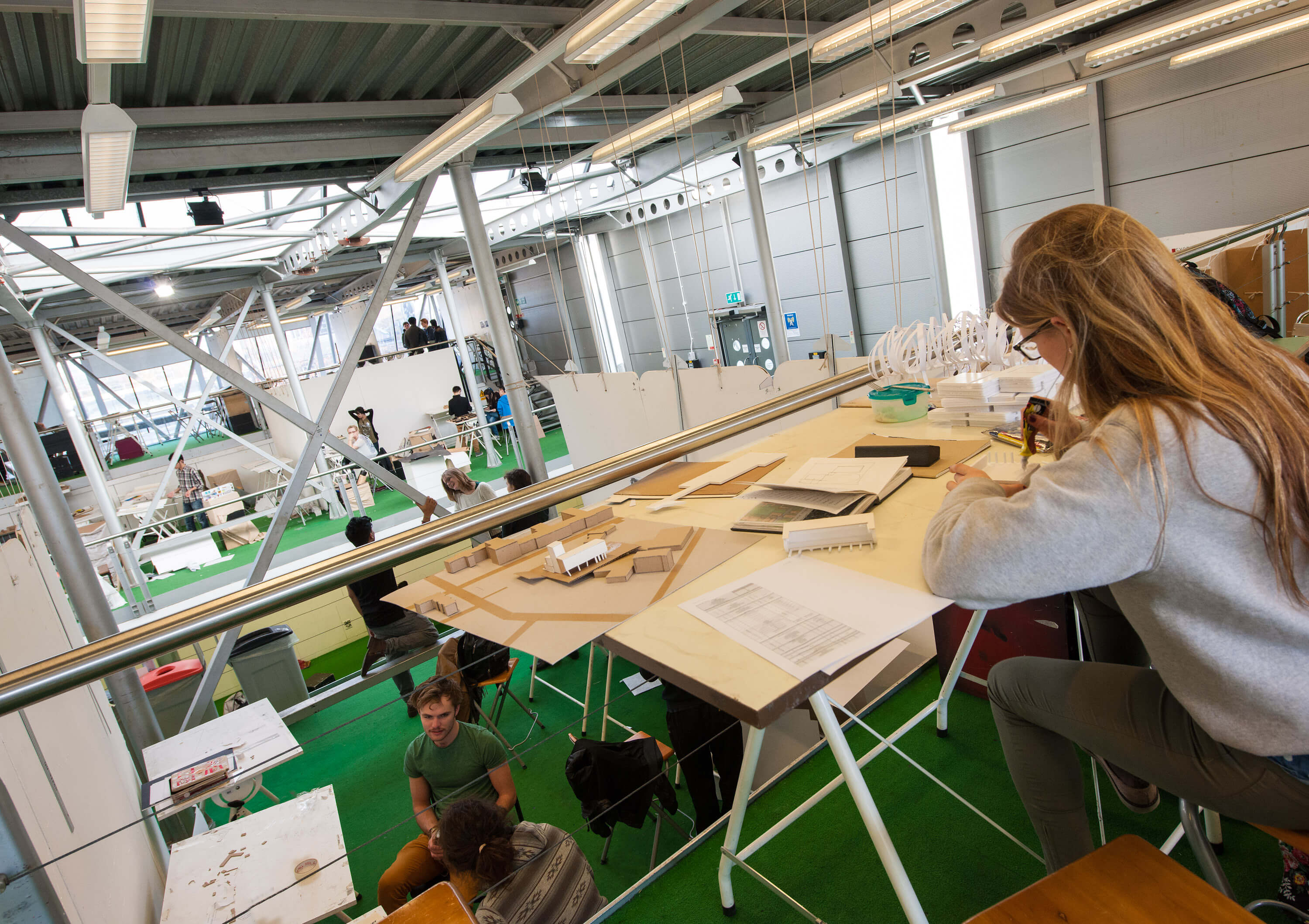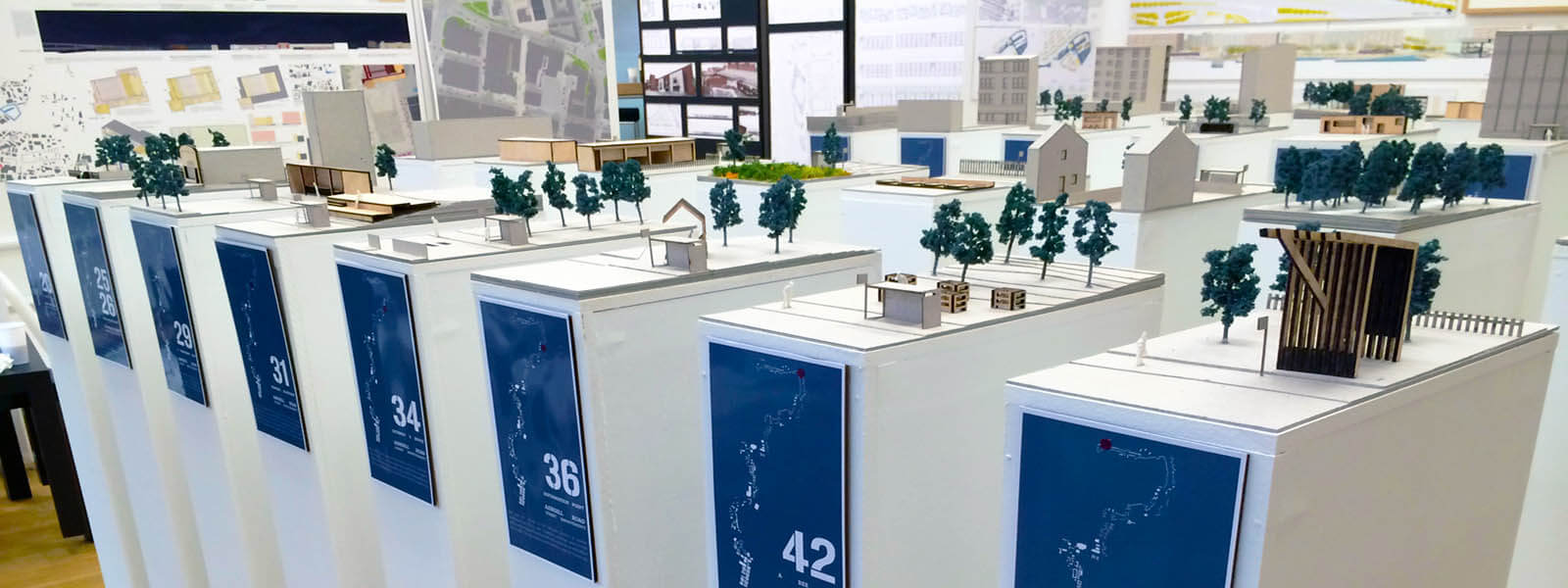
Art and technique. Designing and building. Practical but expressive. Utilitarian and aesthetic-driven. These contrasts define the study of architecture — and are what makes it so exciting.
From the beginning of humanity, this discipline, along with literature, painting, and music, has been the foundation for the cultural evolution of different races and nations. It’s an endeavour that has played a significant role in the history of our forefathers — settled or nomadic — and how they shape their spatial relationship to the natural world and to other societies.
In recent years, the climate crisis has become a clarion call for experts in the built environment. As energy efficiency becomes vital, new design techniques and materials are impacting the costs of heating, cooling, lighting and more too. More than just an industry to produce beautiful buildings, it’s now fallen on practitioners to create potentially planet-saving ones too.
The takeaway? There’s never been a more critical — and thrilling — time to join what the paradigm-changing Charles-Édouard Jeanneret, better known by his nom de plume “Le Corbusier” called “the learned game, correct and magnificent, of forms assembled in the light.” Here are four universities that offer future-focused architecture programmes:
University of Liverpool, School of Architecture

The University of Liverpool is where students forge fresh and impactful social, political, technological and ecological outcomes. (Source: University of Liverpool)
This is the inspiring location for the University of Liverpool’s School of Architecture. As one of the UK’s premier centres for architectural research and education, it has a reputation for innovation, tradition, diversity and excellence. Ranked seventh in the UK according to The Times and The Sunday Times Good University Guide 2019 and performed excellently in the last Research Excellence Framework (REF 2014), this is where students forge fresh and impactful social, political, technological and ecological outcomes through pioneering research, exceptional teaching and bold collaborations.
The School of Architecture offers undergraduate programmes such as Architecture BA (Hons), Architecture BA (Design Studies) and Master of Architecture MArch. At the postgraduate level, students can choose from a wide selection of master’s programmes including Architecture MA; Arts: Architecture MRes; Building Information Modelling (BIM) MSc; Climate Resilience and Environmental Sustainability in Architecture (CRESTA) MSc; and Sustainable Heritage Management MA.
Learning is hands-on here. Creativity and problem solving are encouraged in small classes. One-to-one teaching is possible with a faculty-to-student ratio of 1:12, and all students get access to a dedicated studio space. The latest technology advancements and awareness of global social issues are inherent. All of this happens in well-equipped facilities such as the comfortable, well-lit studio, work and seminar/review spaces; IT teaching laboratories and extensive workshops – considerably more so than in other schools at the university. A high-tech design studio designed by King McCallister (now Shed KM) has 24-hour access; allowing students from all years to work in close proximity and share design ideas between the years. To learn more about the first UK university to award a RIBA-accredited degree in Architecture, click here.
University of Bath

The University of Bath delivers world-class research and teaching, educating students to become future leaders. Source: University of Bath
Ranked sixth in the UK by the Guardian University Guide 2021, and ninth by The Times and The Sunday Times Good University Guide 2021, the University of Bath has one mission: to deliver world-class research and teaching, educating students to become future leaders and innovators, and benefiting the wider population through research, enterprise and influence.
From designing buildings to planning cities, managing construction projects or creating ecologically-responsive places, the Faculty of Engineering and Design aims to develop design skills and to teach how cultural, historical and socio-economic factors inform design decisions.
When students choose the Architecture BSc (Hons) programme, they choose a path of discovery, exploring the creative possibilities of architectural design and its potential to make a positive impact on the built environment. The programme combines project work in design studios and studies in history, with theory of architecture and practical experience gained in practice.
For students who want to enhance their architectural knowledge, the Architecture MArch (Hons) programme focuses on developing skills to manage an architectural practice and lead or work within cross-discipline project teams. In the studios, students cover architectural design through creative invention of architectural futures, integrating aesthetic, technological, programmatic, environmental and social issues in the production of buildings.
University of Strathclyde

At the University of Strathclyde, students learn to engage, speculate, and innovate, taking the lead in reimagining the limits of architecture. Source: University of Strathclyde
Located in a vibrant and welcoming city bursting with character, Glasgow, the University of Strathclyde offers students world-class programmes and endless opportunities. As the university continues to move into a bold and exciting future, it continues as a leading international technological university that makes a positive contribution on the world.
The university’s Department of Architecture is ranked first in Scotland and third in the UK for Architecture. Here, students learn to engage, speculate, and innovate, taking the lead in reimagining the limits of architecture.
For students who want to discover architectural ideas through cutting-edge content, develop creativity and gain a practical understanding of the built environment, then the BSc Hons degree in Architectural Studies is the best fit. With a focus on the design of buildings, towns and cities, and the historical and theoretical ideas behind them, the programme balances the practical realities of the world with innovative design.
For students who want to upskill, students can choose from a selection of postgraduate programmes including Advanced Architectural Design; Architectural Design (International); Advanced Construction Technologies and BIM; Architectural Design for the Conservation of Built Heritage; Sustainable Engineering: Architecture and Ecology; and Urban Design.
Cardiff University

Cardiff University has a diverse campus with students coming from more than 100 countries and with a range of backgrounds. Source: Cardiff University Facebook
Cardiff University produces high quality, innovative research which translates into benefits, both locally and worldwide. The university aims to be a world-leading and research-excellent institution of higher learning, driven by creativity and curiosity.
Cardiff’s Welsh School of Architecture offers imaginative, rigourous, and forward-thinking programmes that shape the future of the profession. The BSc Architectural Studies is all about the bigger picture, and how architecture integrates with urban design and urban planning. Here, students will learn how to effectively communicate ideas visually – to clients, communities and policy-makers – through developing skills in visualisation, model making, digital fabrication and live presentation.
Whether students want to expand their field of expertise, or deepen it, the Master of Architecture (MArch) develops the technical and critical skills required to be both nimble and empowered to act in today’s diverse architectural culture. The emphasis of this course is on innovative design work, and on developing a thoughtful and critical approach to the study and practice of architecture.
*Some of the institutions featured in this article are commercial partners of Study International










